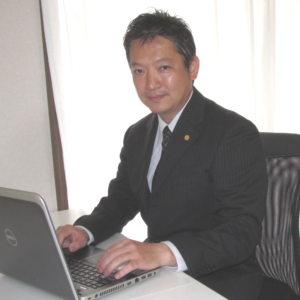Complete Advice for Ensuring the Acquisition of a “Dependent” Visa for Children, Which Has Become More Difficult

- 1. Children’s “Family Stay" Visas Are Becoming Increasingly Difficult to Obtain
- 2. Tips for Ensuring You Obtain a “Family Stay" Visa
- 2.1. When to Apply for a “Family Stay" Visa?
- 2.2. How Much Income Is Needed?
- 2.3. If You Have Many Children, You Need to Be Careful
- 2.4. Applying for a “Dependent" Visa for Children Who Have Graduated from Junior High School
- 2.5. Preparing for Advancement to School in Japan
- 2.6. Consider a “Student" Visa
- 3. Benefits of Early Enrollment in Japan
- 4. Required Documents for Children’s “Dependent" Visa
Children’s “Family Stay" Visas Are Becoming Increasingly Difficult to Obtain
The “Family Stay" visa is a residency status for the spouses (wives or husbands) and children of foreigners holding work visas. Even though they are family, parents or siblings cannot receive a “Family Stay" visa.
Additionally, the purpose of the “Family Stay" visa is for staying under the support of a foreigner holding a work visa. Therefore, it cannot be obtained by adults, or by those who, although not adults, are suspected of seeking the visa for part-time work purposes.
While it is not particularly difficult for spouses, it seems that in principle, this visa is not issued to children after they turn 17. Since there are exceptions to this principle, I would like to explain those as well.
Moreover, even for children younger than 17, it is often difficult to obtain this visa around the age of graduating from junior high school.
This article will explain the cases in which it is difficult to obtain the visa and how to properly prepare to ensure you can obtain a “Family Stay" visa.
Tips for Ensuring You Obtain a “Family Stay" Visa
When to Apply for a “Family Stay" Visa?
It is often misunderstood that you should apply for the visa a few months after receiving your work visa and receiving a few months’ salary. However, this is not necessarily the case. Of course, it depends on the company, but if it is a well-established company, you can apply for the Certificate of Eligibility for the family’s “Family Stay" visa together with the work visa of the supporter.
The “Family Stay" visa for employees can be applied for by the company representative or employees.
This may sound a bit extreme, but since the “Family Stay" visa is for those receiving support, there is no problem in applying immediately. I have applied many times before, and whether the person came to Japan immediately from abroad or changed their status from a student visa to a work visa, the “Family Stay" visa was issued right away.
If the “Family Stay" visa is not issued immediately, it may not be just because of the timing of the change to a work visa but due to insufficient documentation proving income and stability.
Conversely, it is harder to get approved if you don’t apply for the “Family Stay" visa for many years
Families have various circumstances, but some people do not apply for the “Family Stay" visa for many years after obtaining a work visa. In such cases, even if you apply for the “Family Stay" visa after several years, it may not be approved.
If the family has not come to Japan for many years and has not received support, you will need to provide a proper explanation for suddenly coming to Japan to receive support. It is necessary to explain these circumstances and reasons thoroughly.
How Much Income Is Needed?
There is no specific guideline for this, but occasionally visas are denied due to insufficient income.
As a rough guideline, a monthly salary of around 180,000 yen is the borderline for inviting a spouse. Of course, this may vary depending on the examiner and the immigration office handling the application, but I don’t think that falling below 180,000 yen would immediately result in a denial. A spouse alone might still be acceptable.
For a spouse and child to obtain a “Family Stay" visa, a monthly salary of 200,000 yen is a good benchmark.
If your salary is below 180,000 or 200,000 yen, you will need to consider other sources of income. Many companies that employ foreigners provide housing from the day the foreigner arrives in Japan. If the company covers the rent, you can add this to your income. If the address on the rental contract matches the address of the supporter, this can be submitted as proof.
Some companies may increase the salary if the employee is bringing their family. If this is the case, you can have the company prepare a proof document (a free-format letter is acceptable) and submit it.
First, have only the spouse come to Japan, find a job, and then apply for the children’s “Family Stay" visa
If the monthly salary is below 200,000 yen, one common method is for the spouse to obtain the “Family Stay" visa first, find a part-time job, and then bring the children over. This method is often used. Although it slightly deviates from the original purpose of receiving support, since living together as a family is also a provision of Japanese civil law, as long as the combined income of the couple is sufficient, obtaining a visa for the children is not an issue.
If You Have Many Children, You Need to Be Careful
Japan is experiencing a declining birthrate, so having many children generally means 1 to 3 children. However, many foreigners have more than 5 children, and there are children from previous marriages as well.
In such cases, you need to prepare carefully in advance.
Submit a list of children and a Family Certificate in advance
Even if you have many children, there are cases where you only bring one or two children to Japan. In such cases, it is helpful to submit a list of children or a Family Certificate to explain how many children there are in total.
The immigration office dislikes increasing the number of children incrementally. In some countries, the rules for birth registration are unclear or not mandatory, making it difficult to determine whether a child is legitimate.
Since the “Family Stay" visa is for children, if it cannot be determined that the children are legitimate, the visa will be denied.
If you have many children and are bringing them over in small numbers, you need to explain with a list of children’s names, genders, and birthdates why you are bringing only one or two children this time, how the other children are living, and whether there is a possibility of bringing them to Japan in the future.
This will increase the likelihood of getting approval smoothly when bringing the other children over later.
How to Write a “Statement of Reason" for Bringing Over Additional Children Later
There are tips for writing the “Statement of Reason" when applying for a “Family Stay" visa for additional children later.
First, explain the current living situation: who they are living with and what they are doing (e.g., living with the maternal grandmother and attending junior high school), and how they are covering living expenses (it is preferable to be sending money from Japan, and you should submit remittance records as proof).
Next, I will explain why you are coming to Japan this time. If you write a reason like “because I graduated from junior high school," it might be considered that you are coming to Japan for part-time work, and it is often disapproved. You may need reasons such as “My grandmother, with whom I was living, passed away," or “I need to live with my parents because I became ill" (depending on the child’s age).
Finally, explain what you will do in Japan. If you are below junior high school and your parents have been in Japan for about a year, it is sufficient to say “to receive support in Japan." However, if you have graduated from junior high school and your parents have been in Japan for 3-4 years, you need a solid reason. If you plan to advance your education in Japan, you must prove that you have decided on a school and that the procedures are progressing to some extent.
Applying for a “Dependent" Visa for Children Who Have Graduated from Junior High School
There is a high possibility that a child who has graduated from junior high school will be denied a “Dependent" visa. However, meeting the following conditions can be a plus point:
- The supporter obtained a work visa not long ago (within a year, for example).
- The activities after coming to Japan are somewhat determined (such as advancing to a higher education institution).
- There are circumstances that make it impossible to live in the home country (such as the death of a family member with whom they were living).
- Illness or injury.
On the contrary, negative evaluations can occur if a brother or sister who previously obtained a “Dependent" visa is not actually living in Japan and is attending school in the home country. There are quite a few such cases.
Preparing for Advancement to School in Japan
If you want your child to obtain a “Dependent" visa and advance to a school in Japan, it is not necessary to prepare much if it is up to junior high school (compulsory education). However, for high school students, it is necessary to decide on a school in advance and make preparations.
In any case, you need to have a certain degree of decision about the school. If it is a private high school or an international school, there may be schools where admission is possible, so it is necessary to consult about the possibility of admission in advance and proceed with the procedures in advance.
Public high schools are more difficult, so you need to investigate or consult with each prefecture about how they can accommodate foreign students, when the exams are, what language the exams are in, etc.
Make sure to get proof, such as a business card, from the staff when consulting with each prefecture.
To enter a public high school in a prefecture, you want to submit a “reason letter" stating, for example, “Since the entrance exam is in XXX, we want to bring the child to Japan a year in advance to prepare, including learning Japanese." If you are serious about advancing to school in Japan and not for part-time work purposes, you also want to submit proof that you are studying Japanese.
Consider a “Student" Visa
If you cannot obtain a “Dependent" visa, considering a “Student" visa is another method. It is not difficult to obtain a “Dependent" visa up to junior high school, but it is for high school students and above.
In this case, it is a condition that the high school you will enter has been decided, the admission procedures have been completed, and the admission permit has been issued, so it is difficult, but it is worth considering as one option.
Also, if you want to support and send a nephew, niece, or much younger sibling to school in Japan, you should consider a “Student" visa. In this case, you need to properly explain the reason why you are becoming a guarantor or supporter, why it is necessary to study in Japan, who will be responsible for tuition and living expenses, and prove that the person responsible has sufficient assets or income.
Benefits of Early Enrollment in Japan
Some foreigners obtain a “Dependent" visa for their children, but due to educational or living cost reasons, they do not actually have their children live in Japan and attend school in their home country under the care of their parents or others.
It is fine if they do not plan to come to Japan in the future, but a significant number of these children come to live in Japan after graduating from junior high or high school in their home country.
They then work part-time in Japan with a special activity permit under the “Dependent" visa.
If their parents eventually become “Permanent Residents," the children can also become “Permanent Residents." However, if the parents cannot become “Permanent Residents" or need to return to their home country, the children may remain on the “Dependent" visa indefinitely or need to return to their home country regardless of their age.
First, parents need to carefully consider their children’s future.
Visas for Children Who Study in Japan
There are two types of visas that children can obtain after graduating from high school in Japan:
“Long-Term Resident" Visa
If the child enrolls in an elementary school in Japan (an international school is also acceptable) by the third grade and studies from the fourth grade of elementary school to the third grade of high school for more than 9 years, they can change to a “Long-Term Resident" visa after graduating from high school.
It is possible to obtain “Permanent Resident" status if they have lived in Japan for more than 5 years with the “Long-Term Resident" visa.
“Designated Activities" Visa
If the child enrolls in a junior high school in Japan (an international school is also acceptable) by the second grade and studies from the third grade of junior high school to the third grade of high school for more than 4 years, they can change to a “Designated Activities" visa after graduating from high school, provided they live with their parents and can work in any job except in the nightlife industry.
Required Documents for Children’s “Dependent" Visa
- Application form (Application for Certificate of Eligibility or Application for Change of Status of Residence)
- Photo H4cm x W3cm
- Copy of passport (for Certificate of Eligibility application)
- Presentation of passport (for Change of Status of Residence application)
- Presentation of residence card (for Change of Status of Residence application)
- Child’s birth certificate
- Family certificate (if necessary)
- Statement of reason (if necessary, list of children)
- Proof of parent’s employment
- Proof of parent’s income (if recently arrived, it can be included in the employment certificate or get another certificate from the company)
- Tax certificate (if time has passed since arriving and there is a tax obligation)
- Various supporting documents (if necessary)







